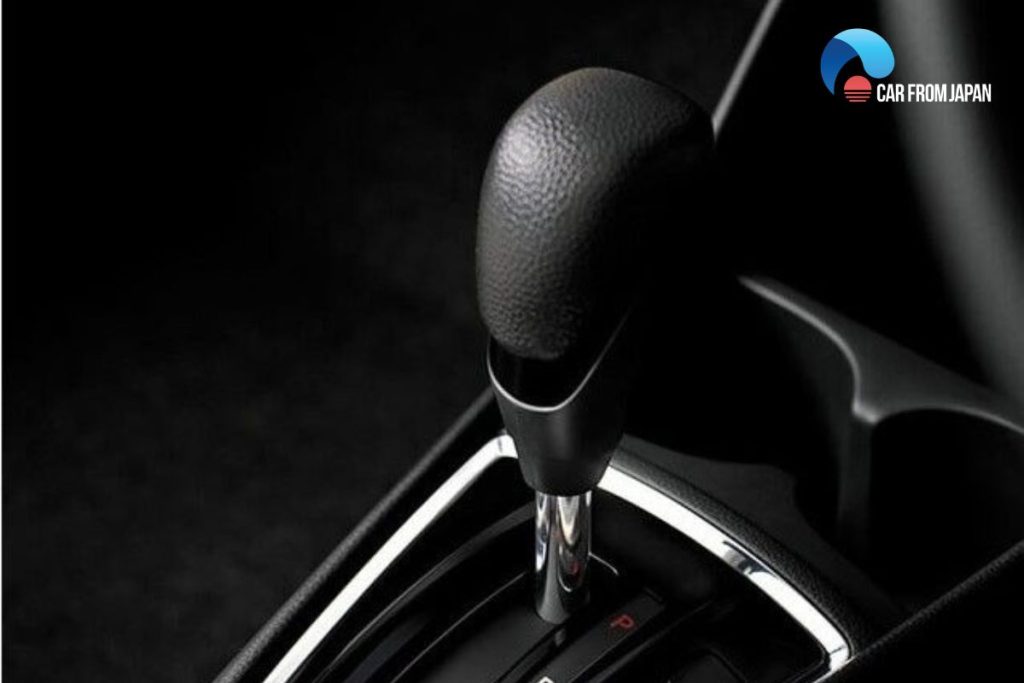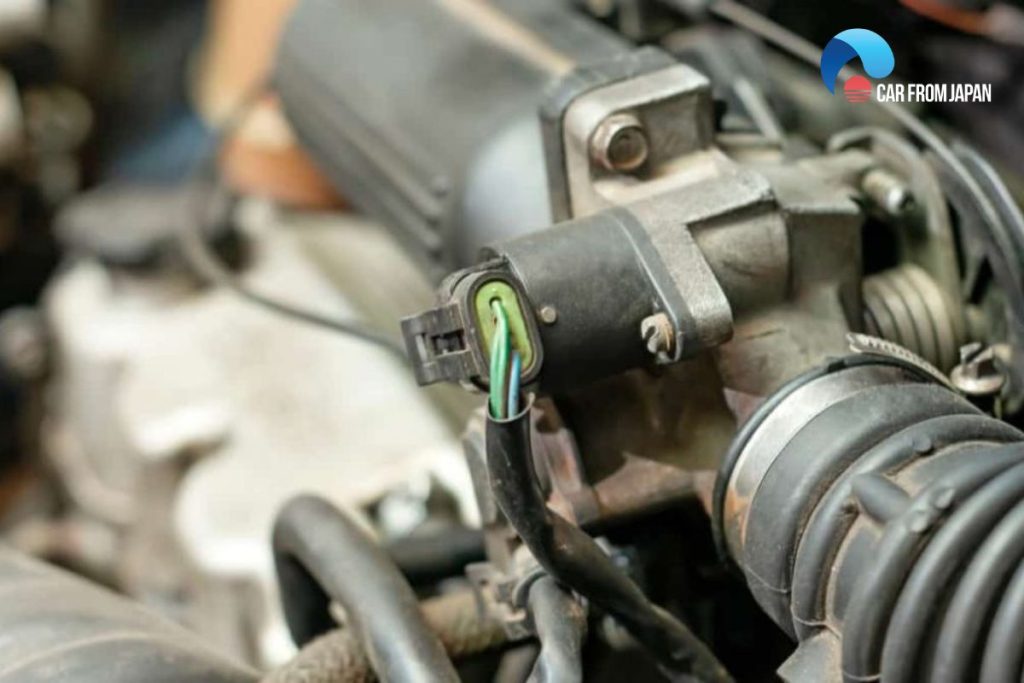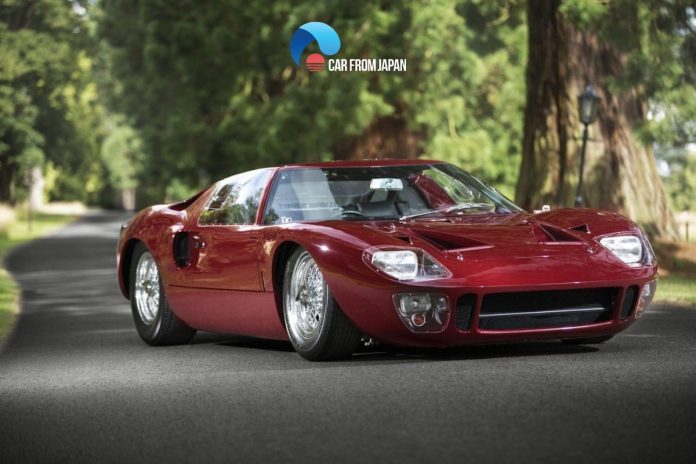Like every other mechanical structure, an automobile is also supposed to have troubles due to issues with one or multiple components. One such particular problem is car dies while idling but restarts later.
There could be numerous reasons for the engine to fail to maintain power at low speeds. Let’s follow along for some!
Contents
Car Dies While Idling but Restarts Later: The Reasons
It is quite irritating when your car shuts off while idling, especially when you are at the traffic signal.
It’s difficult to pinpoint the exact reason without the help of an expert mechanic. However, you can still look into some specific areas to spot the trouble’s source.
Transmission Fault
This particular problem is unique to automatic transmission vehicles. The manual transmissions have a manual clutch for transmitting power. An auto gearbox has a torque converter instead to do this task.
If it is cracked or damaged, or the fluid level in the transmission becomes low, the vehicle will die at the time of idling. A broken torque converter solenoid can also be the culprit.

Clogged fuel filter
Before the fuel enters the engine, it will have to go through the fuel filter to remove all impurities and dirt.
Over time, this filter is prone to damage and gets stuck. Therefore, you should clean and change the fuel filter periodically.
If for a long time, your fuel filter is not cleaned or replaced, it will become clogged. This makes the fuel unable to reach the fuel pump to enter the engine, causing a sudden shutdown of the vehicle, especially a car that is suddenly stopping.
If the car dies while idling but restarts later, drive the car up and down a steep road to see if the problem persists.
If the car still stalls, it is certain that the source of the problem is a blocked fuel filter. You can easily replace it though and it is pretty cheap too.
Fuel pump and fuel injectors
A broken fuel pump cannot properly transfer fuel from the oil tank to the engine, causing the fuel pressure to reduce. The inconsistent oil streaming to the engine does not cause any issues at high speeds but cannot keep it running at low speeds or while idling.
A malfunctioning fuel pump is often difficult to detect. But if the pump is faulty it makes the car engine noisier than usual.
On the other hand, dirty fuel injectors either do erratic spray or no spray of oil at all, causing the stalling of vehicles while idling.
Although the fuel is clean before entering the injectors, over time, the injectors will still be dirty and it will cause the injector to be clogged and blocked.
When the injectors are clogged, the fuel cannot enter the combustion chamber. Spray flow and injection timing are not correct. This greatly affects the combustion process.
Read More: The Reasons for Car Shaking at Idling
Defective mass air flow sensor
The sensor provides the engine with the quality and quantity of the air that goes into the motor. Based on that information, the Engine Control Unit (ECU) decides the amount of oil to be sent to the engine.
The airflow sensor will give incorrect readings if it is defective or dirty, causing the car to shut off a problem when idling.
Malfunctioning idle air control actuator

This component controls the RPMs when the engine is idling. The electronic control unit sends information to the actuator so that it can keep the engine functioning by maintaining the right RPM.
If it’s faulty, it does not send any information to the engine, causing it to stall at idle.
Faulty cooling system
Failure of the cooling system is one of the causes of an overheating engine, causing the car to stall in the middle of the road. The most common cooling system failure in vehicles is a lack of coolant fluid.
When this error occurs, your engine can’t cool down properly. Besides the cause of low-level coolant, the vehicle cooling system can malfunction due to many other causes such as a broken water pump or damaged thermostatic valve.
Whatever the cause, just the cooling system having problems will affect the engine operation.
Drivers should handle this situation as soon as they see the warning light on the car dashboard, not until the car stops suddenly while idling or driving, it will be very dangerous.
When the coolant temperature is abnormally high, the driver should quickly pull over in a safe location. If the coolant is boiling, let the car run idle, and turn off the air conditioner and electrical equipment in the car to reduce the load.
Note that when the engine compartment is very hot, be very careful to avoid burns. It is best to wait for the engine to cool down completely and open the hood to check.
If the car has run out of coolant, add more fluid. Then take the car to the garage to have the cooling system checked as soon as possible.
Issues with the wiring harness
A car dies while idling but restarts later due to misfiring ignition too. If the wires in the wiring harness are corroded or loose, the car will lose voltage because of the unstable connection to the ignition circuit.
As a result, the engine won’t have adequate power to stay functioning when the speed slows down.
Watch this video from Scotty Kilmer to know more about how to fix a randomly car dying!
How To Prevent Cars From Stalling While Driving or Idling?
To avoid the situation that the car is stalling or turning off the engine at idle you should note that:
- Check and maintain the engine and related parts in accordance with the vehicle manufacturer’s maintenance schedule
- Regularly check the car cooling fluid, and refill when almost empty
- Change engine oil every 5,000 – 8,000 km is recommended (the exact number will depend on your car model)
- Periodically clean the fuel filter, change the fuel filter every 40,000 km or 2 years of operation
- Replace new spark plugs after 40,000 – 100,000 km and car injectors after every 20,000 km of operation.
FAQs on Car Dies While Idling but Restarts Later
Why does my car die at idle only after a long drive?
This could be due to a failing crankshaft position sensor or an overheating ignition coil.
These components may work when cold but start failing once heat builds up, causing the car to stall.
Why does my car die at idle after refueling but drives fine afterward?
A faulty EVAP purge valve may be allowing excess fuel vapors into the engine after refueling, causing a temporary rich fuel mixture that leads to stalling at idle.
Can a loose gas cap cause my car to stall at idle?
Surprisingly, yes! A loose or faulty gas cap can cause EVAP system issues, leading to an improper air-fuel mixture, which might cause the engine to stall at idle.
Why does my car only stall at idle when I’m on an incline or decline?
This could indicate a problem with fuel delivery. A weak fuel pump, clogged fuel filter, or improper fuel tank ventilation can prevent fuel from reaching the engine properly when at an angle.
Final Words
A car dies while idling but restarts later presents a frustrating and often intermittent problem with potential causes.
You should be cautious even with simple issues like a dirty air filter or loose battery connection to more complex problems related to the fuel system, ignition system, or sensors!
For more insightful Car Maintenance tips, follow Car From Japan!




My car partly dies while idling or the idling varies going low. At other times while idling it increases the rate by itself. This is a Nissan wingroad manual transmission. What could be the issue?
My car, a 1999 NISSAN ‘Altima’, stalls occasionally and when it does, EVERY system “DIES”, including, all lights, radio and ignition. Then, within a few minutes, I turn on the ignition and EVERYTHING bursts into life again and the car performs just fine until the next indeterminate time and date. Sometimes, but NOT ALWAYS, turning on the A/C will cause the car to stall when in a parked position. I should be most grateful for a little help regarding this frustrating problem. THANK YOU.
Have 2017 Jeep Cherokee latitude 35000 miles on it and just started to turned off while I driving it
take something while to restart but no easy as normal do
I have a 2012 hyundai sonata and I had the same troubles all people talk about. Car shakes and shuts off. Car turns off while at a stop. Car shuts off when you slow down at a turn then gas it. Car shuts off while at idle, then turns on later. While all the answers that are given in this article can be a factor yes. But theres always one factor that noone is paying any attention to and that is, your brakes are always applied when in this situation . Even if your not on your brake. Can the brake switch stay on after you press the brake? sure can. That’s what was wrong with my car, the rubber brake switch grament that was installed by the manufacuture to depress the brake switch was defective. The switch stud indented its self into the grament and when brake was released the brake lights would stay on. all newer cars have a safety device now If you are driving and your gas pedal gets stuck which has happened to many people even deaths because of falty gas pedals when brake is applied while gas pedal is stuck it kills the gas pump .which infact stalls or shuts off you car. So if your driving and brake. Or come to a stop and your car stalls it’s most likely your brake switch or the grament that depresses the brake. I change the grament with a hard plastic one instead of rubber. And my car is a champ. My name is Anthony I’m an Aerospace Mech here at GKN aerospace ca. I fixed my own car because dealers could not figure out what the problem was.
Did this fix work for the long term? Did you completely get rid of the issue?
Thank you.
I have 2000 honda accord lx car turn off when driving but notice when i restart the car, if the check engine lite is not on the car wont start until it is struck. Hitting the steering column does the trick but going nuts trying to figure it out. Replace the steering column, reprogramed keys, dashboard cluster and wire harness to the key ignition. Lost for what needs to be wrong.
I have a toyota corolla 2 corsa EL 30-1990 car.
engine is carburetor model.
recently my car engine start and engine shut off after 3 minutes.
it will not start then. i have to wail around 30 minutes.
1 week ago i changed the fuel pump, fuel filter and spark plugs because the engine did not start.
after that repair engine started and worked smoothly 2 days.
there after i got that 3 minute problem.
can any body please help me.